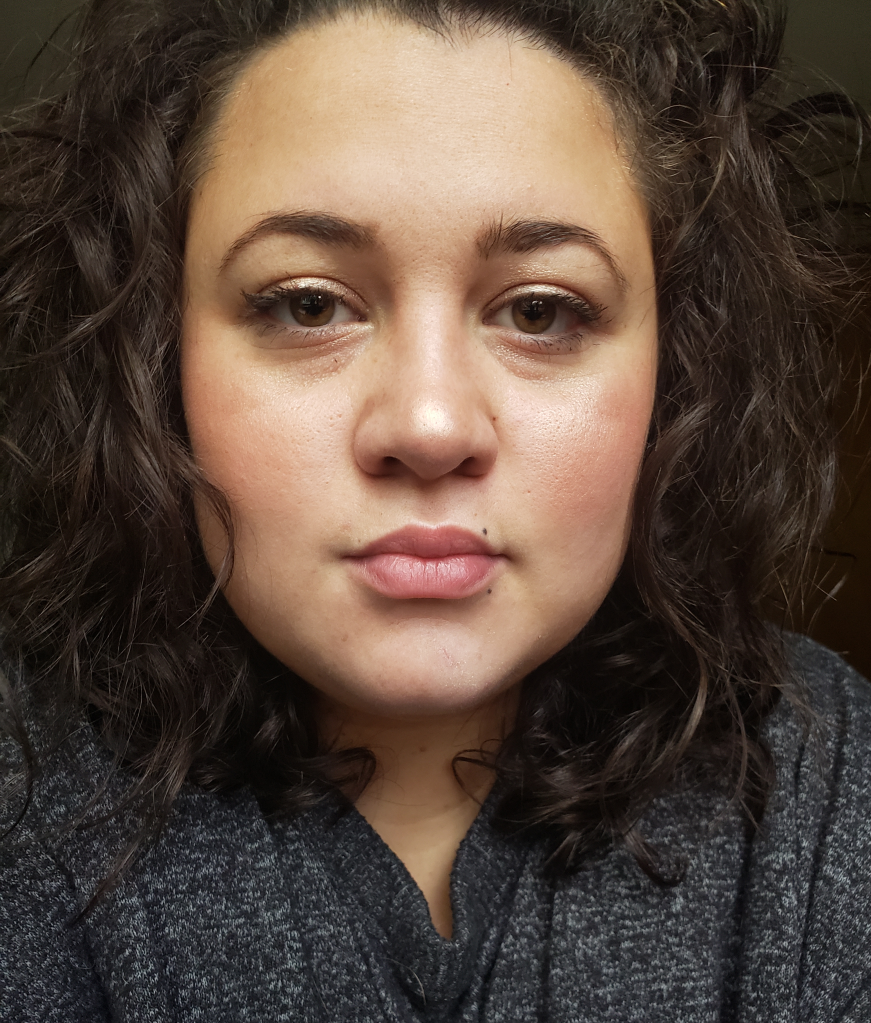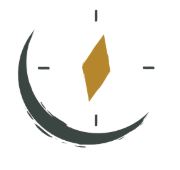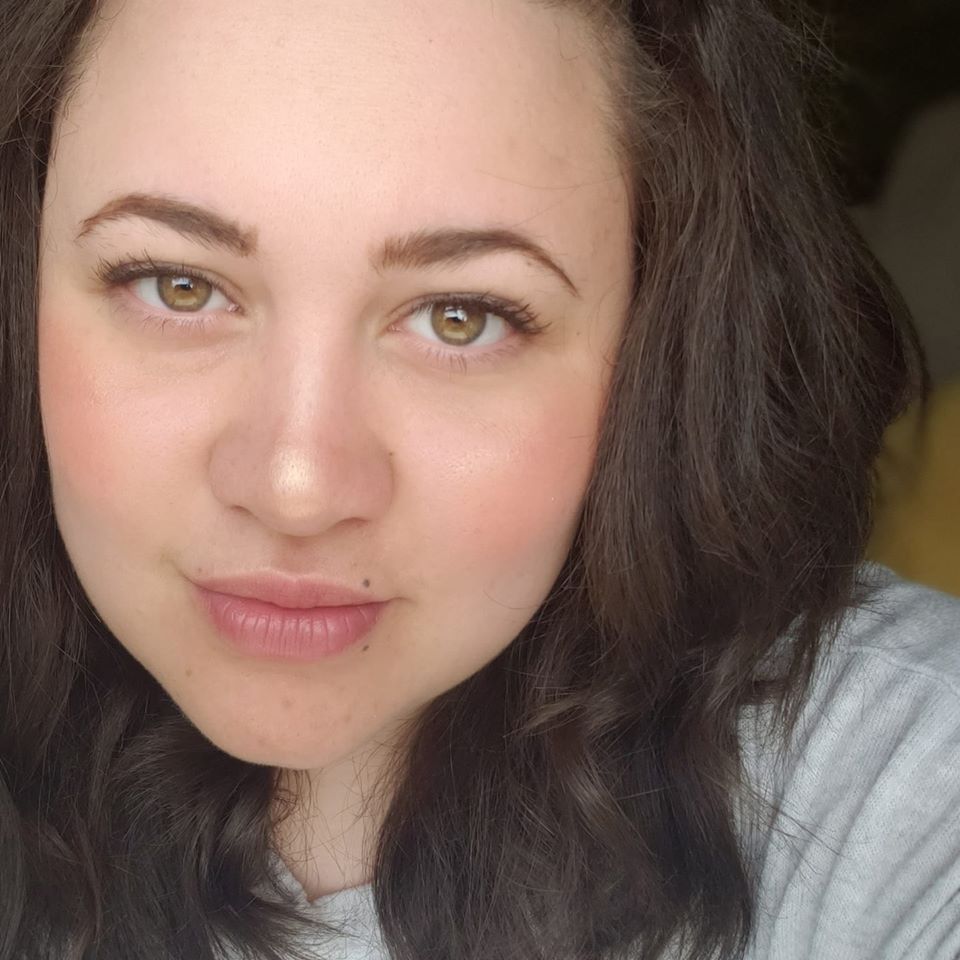TRIGGER WARNING: Body image, rape, abuse, ancestral trauma. Reader discretion is advised.
“My body is my vessel. An archive of experiences. A weapon that has fought battles that only I understand.”
Sophie Lewis

I’ve been thinking a lot about skin. The journey that mine has been on and the relationship I have with it. How I have treated it. What my skin means to me. I don’t think I have ever paid that much thought to my skin–it was always something that was there, functioning as it was meant to.
I have never had a skin care routine. I would try different things because it was the thing to do, and then I would get bored and stop caring. I would hide my skin behind layers of makeup. I rarely used moisturizer. I never saw skin care as something I was worthy of. When other women would invest in their skin care, I would just get out an old cloth and use whatever soap was there. It never occurred to me that I deserved to have anything more.
When I was younger, I would receive comments about how my skin “looks like porcelain”. That it would look like it is “glowing” and all sorts of other white centered praise. I was given compliments only on qualitues passed down to me by colonizers. Any compliments given to me about features passed to me by my Taíno, African or Middle Eastern ancestors came in the form of microaggressions. Microaggressions were not things i learned about. When I was a kid, my skin was a golden brown. It was so beautiful and as I grew older, I became lighter and lighter and somewhere along the line this changed. My skin would react to the sun and I would burn instantly. It would be a burn so bad that it would leave scar tissue. It was a violent reaction to the gifts the sun was trying to offer me.
The first time I ever really noticed my skin was when my grandfather told me the moles by lips were sexy. I must have been about 10 or 11. I remember not knowing how to respond. I remember becoming self-conscious about my moles. Instances that followed this were my grandfather pointing out blemishes. My skin was always a topic of discussion with him. My sister, who is gorgeous with darker skin and perfect hair, would always get a reaction from him like so: “Here comes Miss America!”. I never felt that my skin made me beautiful.
Cut forward and I begin to take notice of how light my skin is compared to my family members and I become more self-conscious. This outer shell becomes an additional source of discomfort, and now I feel like I do not belong or that I do not have a place. I am reminded frequently of how much of a shock my skin color was when I was born. This places me further out, and I continue still to find shame in my skin cells. I grew up in a neighborhood of mostly Irish Italians. I grew up when the ideal beauty was thin, with straight silky hair. I did not see girls like me represented in the media with curly hair, my cheekbones, my nose, my eye color, my large hips, my 5 foot frame, my muscular legs.
I recognize now that my early experiences with other people’s commentary on MY vessel really impacted me. When people would comment on my skin, I would actually take offense. Whether it was a pleasant comment or not, I was uncomfortable. I didn’t want this type of attention. I wanted to hide. But skin is not something you can control, and so I was stuck being confronted by some stranger about my skin–someone who felt they had a right to take some form of opinion and voice it about the layer of flesh that holds my vessel together. There was no escape. So I would rebel. I would opt out of taking care of it beyond soap and water. I would let it dry itself out. I would refuse to take the day’s makeup off. I always felt like my body was subject to the opinions of those around me. My grandparents commenting on my weight or how they hate my curly hair. Someone always had something to say, like they were entitled to it. I find myself now, wondering how often my ancestors experienced the harsh grip of entitled abusers.
I recall the first time I was allowed to become strong and feel respected based on the fact that I am a human. I was 23. I had just gotten a personal trainer. James. He was a fifty something year old, Black man. Aside from my own father and maybe one professor from college, he was the first man who never expected anything out of me. He knew I could do more, and he helped me realize it. But he did not push me, he asked me to be honest with what I could do. He never commented on how I looked. He only ever asked me how I was feeling. He told me right away, that our journey together would not be one about appearance. It would be about becoming mentally strong and focusing on how I was feeling. I trusted him. He knew it and he never took that for granted.
Looking back on all of this, my relationship with James was so healing. I wasn’t trying to change my body in our work together. I was changing how I felt about my body. I was becoming stronger. I was able to respect the time and the patience that come with devotion to this vessel.
I say all of this because I made a connection not that long ago. I was talking to a friend and I realized that after I was raped I wanted to hide from unsafe people. So I stopped caring for my body, my skin. I gained weight. I hid in very large clothing. My skin wasn’t enough to protect me. I had to hide that too, so I wore makeup. I grew furious with my body for betraying me and abandoning me when I needed it most. I disconnected.
When I left my abusive relationship, I read somewhere that skin cells replace themselves fully all around the body every seven years. I found comfort in waiting for skin that would never have been touched by my abuser. Then I was raped. I felt a disconnect from my skin in a very visceral way. I wanted so badly to remove my skin and let it become something I could hang dry like laundry and wear again when I was ready. My skin became this entirely separate entity for me. I could not associate with it because it became too painful. It held too many devastating stories. It held no scars for me to be proud of. It felt dirty. It felt shameful. My showers would entail 25-30 minutes of intensive scrubbing. So much so that I would rub my skin raw to try to erase the stories it had to tell. And I just could not escape.
In all of this, this hatred for my skin and resentment towards my body, I had never stopped to listen to it. To really hear how it works. What it was trying to say, and how my ancestors have communicated to me through it. In fact, I think there was a time where I actively tried to avoid hearing its message. I blamed my skin for so long. I blamed it for making feel like i was lacking– like i was not enough– “not Puerto Rican enough” or “not Italian enough” or not this or that enough. I blamed my body and my round frame for not allowing me to fit in and wear clothing that was never designed with me in mind. I blamed my skin for making me feel like I didn’t belong among family, or the people I share lineage with. I blamed my skin for something it was not responsible for. I blamed my skin for allowing pain in. But skin is a gentle barrier and it is porous and toxins will be allowed in from time to time.
The first time I listened to my skin, I can remember the love I felt. I was overwhelmed to the point of tears. That it replaces itself to ensure I am always refreshed. That regardless of how I feel about it, it will never stop loving me. The love my skin and my body have for me is unconditional. I can’t help but feel like I wasted so much time wishing it was different, all the while it always just wanted to make me feel like I am enough. This unconditional love is where my ancestors speak to me.
When I really listen to it, I hear it ask for my patience. I hear it tell me how rewarding patience is. I hear it tell me that my hips are big because my body was designed for resilience. This resilience is not loud. It makes itself apparent in my womb as it has within all the women who have come before me. My skin holds stories of violence, and death and rape and sorrow. My skin holds stories of pain. It holds stories of hurt and helplessness. But it holds stories of love too. It holds gentleness, tenderness. It holds stories of hope. I am here now because my ancestors prayed for me. My ancestors prayed that I would be the one to heal this pain. They show up for me everyday in the way my skin does.
My skin heals slowly, showing the fruits of patience each time. When I nurture my skin, and my body I am nourishing and healing for my ancestors who were never allowed to nurture their skin; they were criticized for their skin; they were not fortunate enough to have restorative time. They were made to feel non-human. The sun left visible kisses on their skin and they were punished for it. When I rest, I am resting for my ancestors who were never allowed to rest. My body has blood from the oppressor and the oppressed. Its very existence means it is at war with itself. I have to work extra hard to find peace in that every day. Every individual cell in my body works hard every day so that I can continue to work at healing the pain of the wounds I have inherited and encountered along the way. My skin did not originate with me. It was passed down to me by the people who prayed for me to exist. This makes it so much easier to love.
When I wear soft, clean clothes I am providing tenderness that they needed and never received. When I cleanse my body with water, I am washing away pain. When I nourish myself, I am giving nourishment to the vessel that carries me. I can cherish the shape of my eyes knowing that my soul speaks through them. When I rest, I tell the women who came before me that the struggles they encountered were not in vain.
My skin means more to me now, than ever before. I have been unkind to it. This was a learned behavior. I work everyday to unlearn it to honor the people who have come before me. This skin and this body do not exist for the commentary of others. It is strong. It is healing. My skin has taught me so much–
It is not similar to the vessels of the many folks I encounter each day. It does not have to be.
It does not have to be perfect for me to love it. Each time the sun kisses it, wounds heal.
My skin greets each day with softness. It allows everything it meets in, and pushes what does not serve it right back out. It teaches me to learn everything and use what serves my healing best.
The skin on the bottoms of me feet is rough and calloused. It is deliberate and prepared for the steps which propel it forward. It teaches me to be fearless on the gravel path of lessons ahead. It is ready.
The skin on my legs is thin, and weathered and yet it is unwavering. It holds scars that tell stories. It teaches me to carry the stories of my past, and to move forward with intention.
The skin of my stomach is always warm and soft. It stretches as it needs to, teaching me flexibility. There is nothing rigid about this skin.
The skin on my chest hold lines and marks from where it has been confined. It remind me each day of how liberating it is to be let free of constraints. It graces cloth and the reward of freedom is sweet.
The skin on my shoulders is scarred from a sunburn. This scar will likely last a year before my skin fully heals. This teaches me patience and an admiration for what i cannot control.
The skin of my neck is covered in tags. I used to hate them but they are companions for one another. Teaching me that nothing in this life that makes itself known does it alone.
The skin of my hands is my favorite skin. They teach me every day to pay attention to detail. each cell so well defined and embracing whatever sweet relief they can find.
The skin on my face clings to a bone structure passed down to me by my ancestors. It teaches me the importance of knowing where I have come from. My skin is the gift and the language of my ancestors.
I leave you with this today:
I would only encourage you to consider the things that your skin is saying to you. What healing do you need to provide for your skin? What do you know about yourself because of your skin? What is your relationship with your skin?
Be soft with yourself. Be gentle with yourself. Be tender with yourself. Be well.
Gigi


